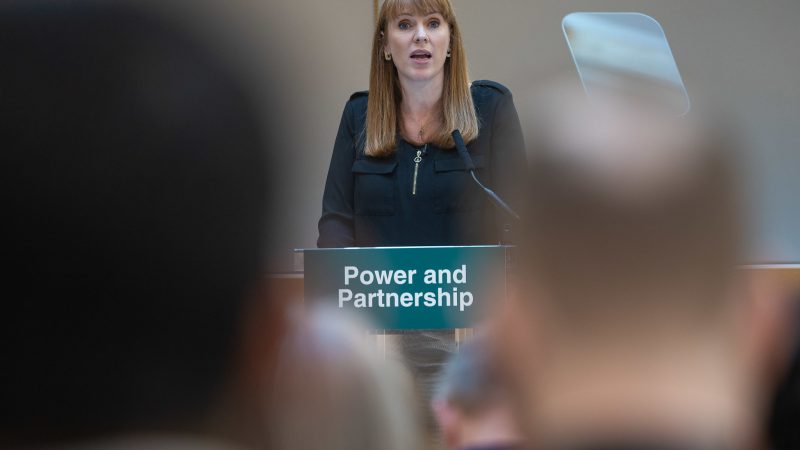
Today’s White Paper is a big step towards the Take Back Control Bill (now next year’s English Devolution Bill) when Keir Starmer promised a ‘whole new way of governing’ nearly two years ago. Its vision may be less radical than a transformation of the English state but does give a clear sense of direction.
The paper proposes three-tiers of ‘strategic authorities’: Established Mayoral Strategic Authorities, starting with six current mayoral combined authorities including Greater Manchester and the West Midlands; Mayoral Strategic Authorities, covering the less well developed and more recently agreed combined authorities; and Foundational Strategic Authorities in areas with non-mayoral combined authorities or no devolved layer at present. (The government also aims to align the London Mayor’s powers with additional powers available in the established Mayoralties)
A new statutory framework will set out the powers and strategic responsibilities available to each level of Strategic Authority and how authorities can take on extra responsibilities. It should replace the current opaque system of ‘deals’ and deliver ‘devolution by default’. Areas where Strategic Authorities can ‘act strategically’ (although what that means is not clear) might include transport and infrastructures, skills and employment, housing and strategic planning, economic development and regeneration, environmental, health and well-being and public safety. Established Authorities will gain new powers, symbolised by allowing some city regions to run suburban rail services and the promise (already partly delivered) of a single pot funding to replace separate funding streams.
READ MORE: District councils face axe in major local government overhaul
The White Paper comes down hard in favour of elected mayors for all areas of England and shifts power subtly but significantly from local authorities to mayors (for example, ending the requirement for unanimous support for mayoral policies from member councils, and extending their powers over planning).
In the roughly half of England outside London governed by ‘two-tier’ county and district councils and some all-purpose unitary councils the strategy is less clear. The government both wants districts and some small unitaries to merge into large unitaries (of over 500,000 voters) and to continue to put forward proposals from county and other unitaries for combined authorities.
There are rumours that some areas are ready to go, but whether many areas can do both at the same time will remain unclear until ministers write to local councils in January. If not, serious devolution may be delayed until the eve of the next election. Perhaps for this reason, county and unitary councils will be asked to work together to deliver the strategic spatial strategies needed to deliver housing and other missions even if they don’t currently have a combined authority.
Much will depend on the resources available to the Strategic Authorities. Mayors won’t be allowed to right to raise extra money by, for example, tourist taxes. Long-term funding will remain unclear until Comprehensive Spending Review. It’s not clear how much freedom Mayors will have to set their own spending without being answerable to Whitehall, although there are nods towards a more locally based system of accountability. In many policy areas Strategic Authorities will depend on the cooperation of other government agencies: the terms have a ‘role in’ and ‘work with’ (as opposed to ‘have control over’) appear over 100 times in the White Paper.
READ MORE: ‘Bigger authorities aren’t always better, for voters or for Labour’s chances’
Existing powers for communities and councils to tackle vacant building and secure community assets will be strengthened, but there is no clear picture of local community governance below the level of the new mega-unitaries and mayoral authorities.
All this is against the background of more councils facing bankruptcy or something close to it, where many struggle to deliver their statutory responsibilities, and proper audit has collapsed. A short-term funding package is promised with three year-settlements to follow and there-introduction of audit and standards. Missing is a longer-term commitment to reversing some of the past 40 years of centralisation in which local government has lost resources, financial autonomy, the ability to provide many services.
The last government was guilty of blatant political pork-barrelling when giving public money to Tory areas. There are no signs of Labour rigging the new local government map to suit party interests. Indeed, one political consequence may well be the loss of both Labour councillors and Labour councils in smaller towns and cities while new mayors – the most high-profile politician in each area, including those with newly elected Labour MPs – will often be Conservative, Reform or LibDem.
Welcome though these changes are, the truly radical shift of resources and powers needed to reverse England’s chronic centralisation or deliver on the government’s promised missions is not on the cards in the foreseeable future. The White Paper is a further measured and progressive step towards English devolution, but attention will now turn to the English Devolution Bill and the opportunities it will provide to strengthen further the commitments made today.
For more from LabourList, follow us on Bluesky, Threads, X, Facebook, Instagram or WhatsApp.
SIGN UP: Get the best daily roundup and analysis of Labour news and comment in our newsletter
- SHARE: If you have anything to share that we should be looking into or publishing about this story – or any other topic involving Labour– contact us (strictly anonymously if you wish) at [email protected].
- SUBSCRIBE: Sign up to LabourList’s morning email here for the best briefing on everything Labour, every weekday morning.
- DONATE: If you value our work, please donate to become one of our supporters here and help sustain and expand our coverage.
- PARTNER: If you or your organisation might be interested in partnering with us on sponsored events or content, email [email protected].




More from LabourList
Government abandons plans to delay 30 local elections in England
‘The cost of living crisis is still Britain’s defining political challenge’
‘Nurses are finally getting the recognition they deserve’